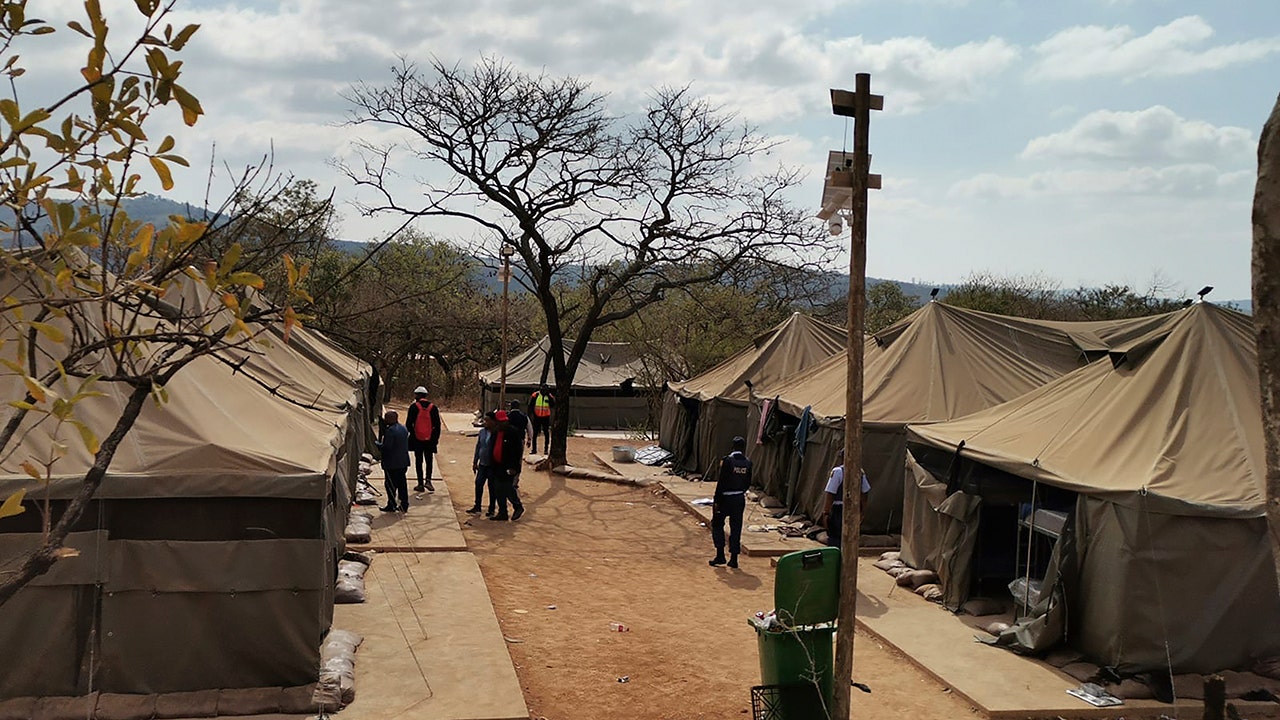Israel stepped up its military offensive in Rafah on Tuesday, sending tanks into the heart of Gaza’s southernmost city despite growing international condemnation of the operation.
In the wake of a lethal Israeli air strike over the weekend that killed dozens of civilians, Israel pressed farther towards Rafah’s centre with military vehicles taking positions near the Awda roundabout, according to eyewitnesses.
At least five Israeli military combat brigades were operating by Tuesday in Rafah and the adjoining frontier with Egypt, called the Philadelphi corridor, pushing westwards into more densely populated areas of the city.
The scale of the military deployment suggests Israel is mounting its most significant operation inside Gaza for several months.
Israel considers Rafah Hamas’s last stronghold in Gaza and launched its assault earlier this month despite widespread international concern for the 1.4mn Palestinians that had sought refuge in the city.
Humanitarian organisations have warned about the risks to civilians of an operation in Rafah, where hundreds of thousands of Palestinians are sheltering, but the US state department on Tuesday said it did not believe Israel’s offensive amounted to a full-scale military assault that would cross any red lines set by President Joe Biden.
Matthew Miller, a state department spokesperson, said the US judged Israel’s operations to be on a more limited scale than its previous operations in Khan Younis and Gaza City. “This so far is a different type of military operation,” he added.
“We will continue to emphasise to Israel their obligation to comply fully with international humanitarian law, minimise the impact of their operations on civilians, and maximise the flow of humanitarian assistance to those in need,” Miller said.
According to the UN, about 1mn people have fled Rafah ahead of advancing Israeli troops, to what Israel describes as humanitarian “safe zones”, but which international aid groups have criticised as lacking basic infrastructure and supplies.
“Many citizens are trapped in the middle of the city,” said one Palestinian in the area.
Local officials in the Rafah governorate said later in the day that 21 people were killed, and dozens injured, by Israeli fire in an encampment of tents for the displaced in the city’s western outskirts.
The Financial Times could not immediately establish more details relating to the incident. Israel’s military denied any such attack: “Contrary to the reports from the last few hours, the [Israel Defense Forces] did not strike in the humanitarian area in Al-Mawasi.”
The report came just two days after an Israeli air strike killed at least 45 people in another camp for displaced people in the north-western Tal as-Sultan neighbourhood.
Miller said the US had expressed its “deep concern” to Israel over the incident and added that Washington was waiting for the results of the full Israeli investigation into the incident.
He noted that the IDF’s preliminary conclusions were that the strike hit 1.7km away from the area where civilians were seeking refuge.
Israeli leaders have made clear that nothing will stop the Rafah offensive, which is a bid to dismantle the last four standing Hamas battalions in the territory as well as to rescue Israeli hostages that the IDF says are being held in the area.
The IDF has also seized at least 50 per cent of the 14km-long Philadelphi corridor, according to one Israeli official. IDF infantry and combat engineers have been working to locate and destroy tunnels connecting Gaza to Egypt’s Sinai peninsula, which Hamas has allegedly used for years to smuggle weapons and commercial goods.
IDF spokesperson Daniel Hagari said the military was working “in a precise way, more accurate, more safe and sometimes slower” than past operations in the strip over the past seven months of war.
Hagari added that the military investigation was ongoing into the exact cause of the massive fires that raged through the makeshift shelters in Rafah over the weekend after an Israeli strike killed two senior Hamas operatives in a nearby compound.
According to Hagari, a preliminary Israeli military investigation has found that the strike, which deployed two relatively small 17kg munitions, hit only the targeted compound. But he said “another something” caused a second compound nearby to ignite.
“Our munition alone could not have ignited a fire of this size,” Hagari added, while emphasising that the camp was almost 200 metres away from the attack site. Israeli Prime Minister Benjamin Netanyahu on Monday called it a “tragic mistake”.
Martin Griffiths, the UN’s aid chief, said “no place is safe in Gaza”, as he described the attack at the weekend as an “abomination”.
“We have also warned that a military operation in Rafah would lead to a slaughter,” he said. “Whether the attack [at the weekend] was a war crime or a ‘tragic mistake’, for the people of Gaza, there is no debate.”






/cdn.vox-cdn.com/uploads/chorus_asset/file/25547838/YAKZA_3840_2160_A_Elogo.jpg)






















